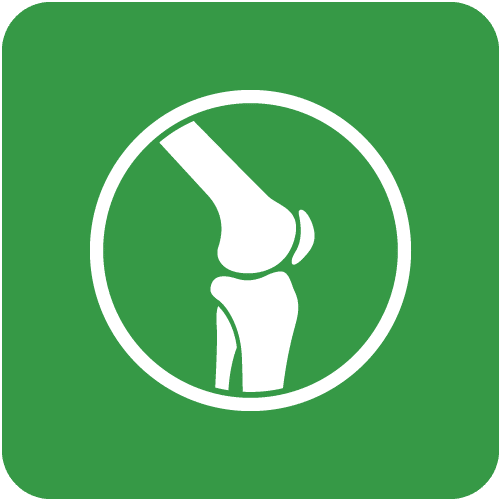
PRIME-Knee is a research study powered by

“The purpose of this study is to examine underlying physical resilience (the ability to bounce back) in response to a specific stressor (total knee replacement).
In general, a person’s specific resilience (ability to bounce back from a stressor) is thought to be dependent upon that person’s specific biological and genetic makeup. However, these specific elements remain poorly understood. The purpose of this study is to identify important predictors and characteristics of resilience in response to a total knee replacement by examining baseline resilience (prior to surgery) and post-surgical resilience at multiple time points, allowing us to track resilience outcomes over time.” (Source: NCT04235309)
Contact Us for more information.
Looking for a technology partner to power your research? Let's talk.
Other Relevant Research Projects
OFSET-SHIELD
The OFSET Study is testing the addition of chemotherapy to the usual treatment of ovarian function suppression plus hormonal therapy in premenopausal ER-positive/HER2negative breast cancer patients who are at high risk of cancer returning.
Read MoreBehavior Design in HF
The Behavior Design in Heart Failure pilot study was conducted over a 6 month period in collaboration with Medtronic and Duke's Center for Advanced Hindsight (CAH). The primary aim of the pilot was to understand if CHF patients would act on instructions provided by a mobile app.
Read MoreTranscendental Meditation Program for Providers
The transcendental meditation program aims to help healthcare workers learn transcendental meditation as a means of coping with stress, anxiety, and depression. This program is also being researched for providers treating patients with COVID-19.
Read MoreSymptom Management for YA Cancer Survivors
The proposed research advances the health and wellbeing of young adult cancer survivors by creating a developmentally appropriate hybrid in-person/mHealth behavioral symptom management intervention which addresses variables consistently linked to significant social, economic, and health burden.
Read MoreSWET
The objective of the SWET-RA randomized controlled trial is to determine the effects of a 16-week remotely delivered weight loss and exercise training intervention on traditional and inflammatory RA CVD risk factors, disease activity, and patient-reported outcomes in older persons with RA and overweight/obesity.
Read MoreREMOTE HF-ACTION
The REMOTE HF-ACTION study aims to test a remote cardiac rehab program using device data from patients' implantable devices (pace makers, defibrillators).
Read MoreOrthopedic Opioid Risk Management
This program collects opioid usage data from participants post-hip surgery and uses an algorithm to identify and stratify patients at risk for opioid-induced respiratory depression.
Read MoreLiver Transplant Rehab
Post-transplant management to improve medication adherence, self-efficacy, and knowledge.
Read MoreLIFT (Mobile Mindfulness Intervention)
LIFT is a self-guided treatment program that aims to improve quality of life, reduce symptoms, help gain independence quicker, and build stronger relationships. LIFT uses a mobile app to deliver automated yet personalized support and minfulness training.
Read MoreLAPS (Long-Term Antipsychotic Pediatric Safety)
The purpose of this study is to monitor height, weight, and quality of life in children taking antipsychotic medications.
Read MoreLAMP COVID-19 Testing Program
The LAMP COVID-19 Testing Program is collecting data from users testing an at-home saliva COVID-19 test developed at Stanford.
Read MoreKids Heart Program
The Kids Heart team enrolls the parents of children with congenital heart defects in the program to track their children's health activities.
Read MoreKidney Transplant Perioperative Program
This program aims to improve self-efficacy in pediatric and adult patients using nurse coaching and education via the Pattern Health app.
Read MoreJoint Health Chronic Care Management
Joint Health Chronic Care Management helps program attendees track their exercises at home between sessions and allows them to track medications or biometrics. It is designed to extend the life of knee and hip joints.
Read MoreiTransition
iTransition is a multilevel mHealth intervention designed to support youth living with HIV and their pediatric/adolescent and adult care providers.
Read MoreHearts and Parks
The purpose of this study is to evaluate how different types of physical activity and nutrition education and support (in addition to normal clinical care) affect children's health. Pattern's platform and integrations are used for remote activity monitoring.
Read MoreFit Together
Fit Together works with adolescents through parks and recreation departments to encourage exercise and track their attendance to scheduled sessions. The program delivers evidence-based recommendations for minority and low-income children with obesity.
Read MoreDyad Linked Incentives
This fully virtual study to investigate how a dyad linked incentive strategy compares to individual incentives for patients taking a single medication. Dyad-linked incentives work by jointly rewarding two linked individuals for both adhering to their medication regimen, adding both social support and peer accountability to traditional incentive structures.
Read MoreCONNECT-HF
CONNECT-HF is a large, multi-site research study that includes an ancillary study/app designed to support guideline-based activities to help patients manage heart failure. The Pattern-powered app tracked key biometrics and delivered personalized educational content about heart failure and help patients manage taking their medication.
Read MoreAwareness of Rare Cancers (ARC) PCP Survey
The ARC measure captures primary care providers' (PCP) ability to appropriately diagnose rare cancers as well as barriers to the appropriate referral of rare cancer patients from primary to specialty care. The results enable practices to better educate providers and ensure patients receive timely care.
Read More